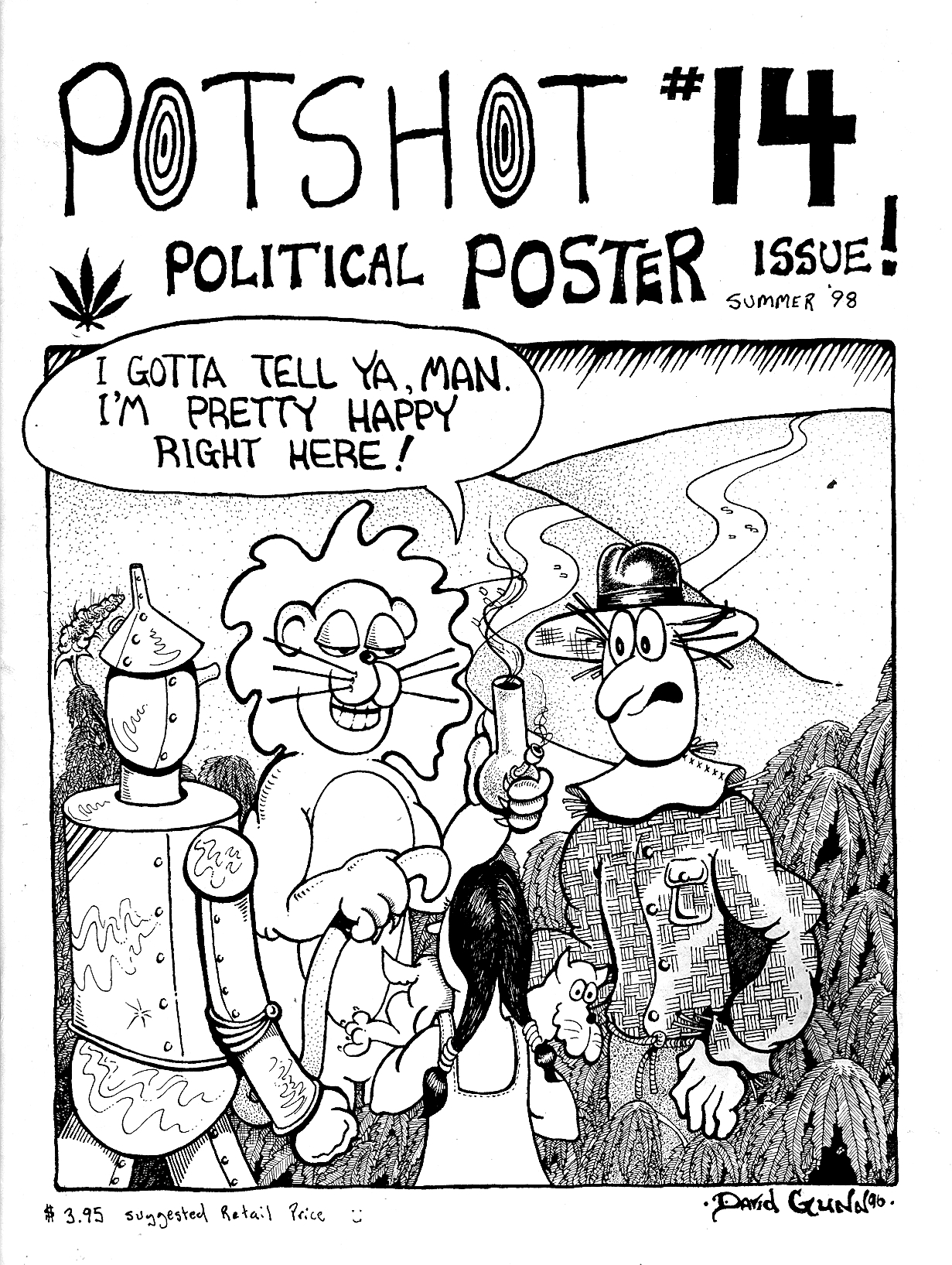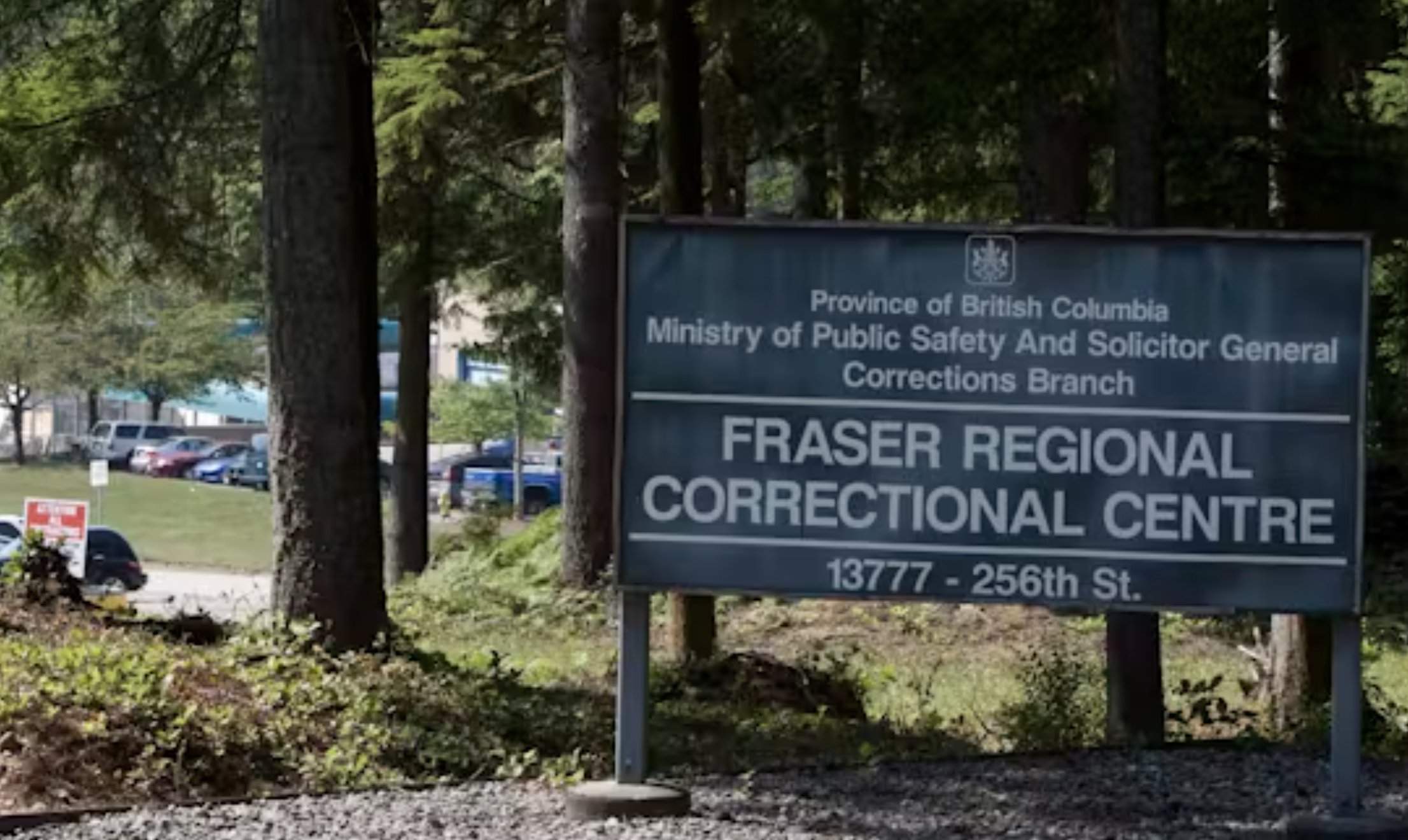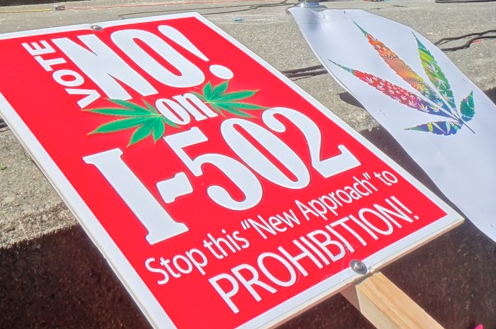It’s Easier to Get Forgiven Than Get Permission

“On the one hand information wants to be expensive, because it’s so valuable. The right information in the right place just changes your life. On the other hand, information wants to be free, because the cost of getting it out is getting lower and lower all the time.”
– Stewart Brand, printed in a report/transcript from the conference in the May 1985 *Whole Earth Review*, p. 49.
“It’s easier to ask forgiveness than it is to get permission.”
– Grace Hopper, As quoted in the U.S. Navy’s Chips Ahoy magazine (July 1986)
If you go to Pot-shot.ca you will find 19 separate issues of my magazine – Potshot – online for free. They are oversized scanned pages of a “clipping zine” I began as something to hand out at the “smoke-ins” I was helping to organize in Edmonton, Alberta, beginning in July of 1993.
At the time, there were no pot magazines of any kind on sale anywhere in Edmonton (there were only zines and newsletters in BC and none of them got to Alberta) and although there had been cannabis “clipping zines” (where news articles and other tidbits of information had been photocopied) such as Mary Jane from the mid 1980’s and Hempfest Times which began July 1993, I had not been aware of any of them when I began making Potshot. As I was finishing the first issue I got a copy of the recently printed Hempfest Times #1, and stuck its front cover on the back cover of Potshot #1.
As you can see by checking out the issues, the content is mostly photocopied from books and magazines, with a bit of commentary written in the margins and the occasional bit of artwork from the past or from contemporary artists. This, of course, is a form of theft, but, as I’m about to argue, it’s justified theft.
There is a legal defense in Canada called “necessity”. It is found in section 8(3) of the Criminal Code of Canada. Section 8(3) states:
• (3) Every rule and principle of the common law that renders any circumstance a justification or excuse for an act or a defence to a charge continues in force and applies in respect of proceedings for an offence under this Act or any other Act of Parliament except in so far as they are altered by or are inconsistent with this Act or any other Act of Parliament.
One of these “principles of common law” is necessity. In Canadian law, necessity is defined thusly:
…a liberal and humane criminal law cannot hold people to the strict obedience of laws in emergency situations where normal human instincts, whether of self-preservation or of altruism, overwhelmingly impel disobedience.
The leading case regarding necessity is called R. v. Perka, where it is written that “From earliest times it has been maintained that in some situations the force of circumstances makes it unrealistic and unjust to attach criminal liability to actions which, on their face, violate the law.”
The decision goes on to quote from Aristotle, Hobbs and Kant, and then points out that
In the present appeal the Crown does not challenge the appellants’ claim that necessity is a common law defence preserved by Criminal Code s. 7(3).
Since Perka was decided back in 1984, section 7(3) turned into section 8(3). That’s why lawyers have to keep buying the latest version of the Criminal Code: it keeps being updated.
To nutshell it, the defence of necessity maintains that it’s OK to commit a small crime to prevent a big crime. The small crime that I am committing with Potshot magazine is called “violating copyright laws”, and the big crime I’m trying to prevent by committing this small crime is “genocide”.
The United Nations anti-Genocide treaty was written in response to Nazi Germany – the war on cannabis users, growers and dealers meets every criteria that the United Nations use to define genocide:
Article II: In the present Convention, genocide means any of the following acts committed with intent to destroy, in whole or in part, a national, ethnical, racial or religious group, as such:
(a) Killing members of the group;
(b) Causing serious bodily or mental harm to members of the group;
(c) Deliberately inflicting on the group conditions of life calculated to bring about its physical destruction in whole or in part;
(d) Imposing measures intended to prevent births within the group;
(e) Forcibly transferring children of the group to another group.
For those who wish to see a deeper version of the “drugwar is genocide argument”, I suggest you read an article I wrote about it for Cannabis Culture.
I am sure that those who take the time to understand this argument will come to agree with me that the drug war is a form of genocide against medically autonomous people, and that I am completely and totally justified in violating copyright laws with Potshot magazine in an effort to understand, explain, contextualize, chronicle, organize against and challenge this horrific war on soft drug users – a war on those who exhibit an intelligent preference for cheap, effective, often safer illegal drugs over expensive, ineffective, often more dangerous legal ones.
That’s why I feel okay about all the copyright violations and theft. I hope you will all check out the website – Pot-shot.ca – and let me know here if you agree or disagree that it’s justified.



